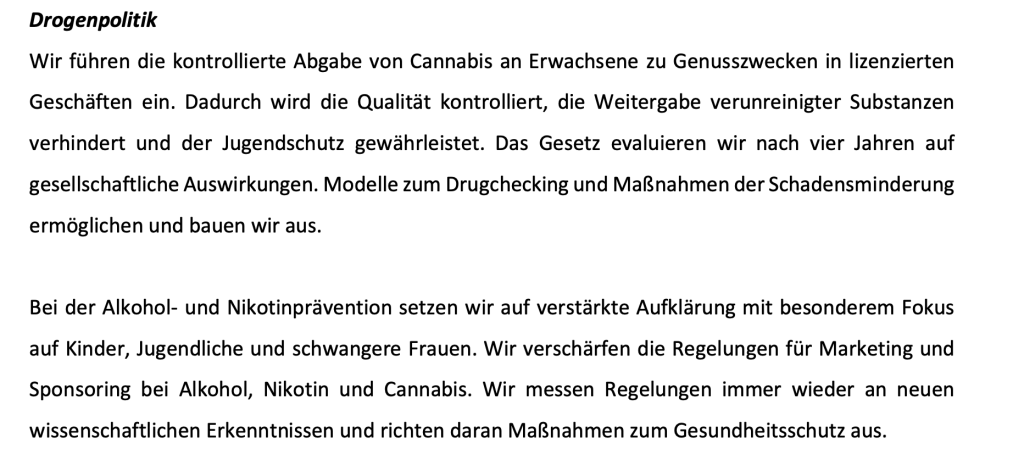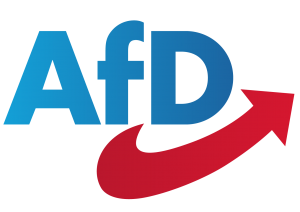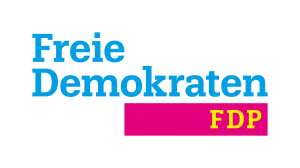Federal election 2021
Auszug aus dem Koalitionsvertrag

With the election test questions, the parties were asked questions regarding the cannabis economy. The answers to these questions can be found in volume 14 of the ELEMENTE series, including a description of the respective election programs with regard to drug & cannabis policy. Click here to access the complete Election Questionnaires.
Under the following links you will find concrete statements of politicians regarding:
Excerpt from the election programs

„Only together as the European Union can we effectively combat drug smugglers, human traffickers, internationally operating gangs, dangerous people and terrorists.”, p. 24 f.
Do not legalize drugs, strengthen addiction prevention
„We reject the legalization of illegal drugs. The health consequences for the individual and the effects on family, environment and society are too great. Those who legalize drugs are not placing the protection of health and young people at the center of drug policy, are shirking their responsibility, and are leaving those affected and their families to deal with the problems alone. That is not our way.We reject the legalization of illegal drugs. The health consequences for the individual and the effects on family, environment and society are too great. Those who legalize drugs are not placing the protection of health and young people at the center of drug policy, are shirking their responsibility, and are leaving those affected and their families to deal with the problems alone. That is not our way.
• What we need is education and early sanctions that are more suitable for the masses, that follow the crime on the heels and prompt people to take advantage of counseling and therapy services.
• When it comes to legal addictive substances, we focus on responsible use. This requires more education, better offers of help and strong protection for young people in order to effectively counter the dangers of smoking and alcohol abuse.”, p. 66
„Criminals are often highly mobile these days, and gangs have long operated across borders in areas such as home burglaries and trafficking in people, drugs and weapons. We are responding to this in our fight against crime.”, p. 111

3.14. Health protection, protection of minors and decriminalization determine our drug policy
„Like alcohol, cannabis is a social reality that we must find an adequate political way to deal with. Prohibition and criminalization have not reduced consumption, they stand in the way of effective addiction prevention and youth protection and tie up enormous resources in the judiciary and police. It should be possible for the regulated sale of cannabis to adults to be tested in model projects by the federal states and local authorities, accompanied by prevention, counseling and treatment measures for young people. In addition, we will regulate on a nationwide basis that possession of small amounts of cannabis will no longer be prosecuted under criminal law.”, p. 52
„We will combat organized crime, especially human trafficking, as well as drug trafficking, gang-related residential burglaries and white-collar crime.”, p. 51
https://www.spd.de/fileadmin/Dokumente/Beschluesse/Programm/SPD-Zukunftsprogramm.pdf

Cannabis only in medicine
„Preparations containing the main active ingredient should be available for medical indications under medical supervision. We advocate the expansion of addiction psychiatric care for permanent abstinence from drugs.”, p. 142
„The considerable proportion of foreigners, especially in violent and drug-related crime, but also in public unrest, currently leads far too rarely to measures under immigration law.”, p. 77
https://www.afd.de/wp-content/uploads/sites/111/2021/06/20210611_AfD_Programm_2021.pdf

„Controlled release of cannabis
We Free Democrats call for a controlled release of cannabis. We advocate allowing possession and consumption for persons of legal age. Only with a sale in licensed stores the quality can be controlled, the passing on of contaminated substances can be prevented and the protection of minors can be guaranteed. If cannabis is taxed similarly to cigarettes, up to one billion euros could be raised annually. It should be noted, however, that a tax that is set too high and thus a correspondingly high price will not lead to effective containment of the black market. The additional money should be used for prevention, addiction treatment and counseling. The prohibition of cannabis criminalizes countless people, ties up immense police resources, and facilitates access to harder drugs through illegal contact with dealers.”, p. 30
https://www.fdp.de/sites/default/files/2021-08/FDP_BTW2021_Wahlprogramm_1.pdf

„We demand the promotion of hemp cultivation in former lignite areas. The cultivation of hemp is a promising chance to meet our demand for a socio-ecological change within the structural change of an ecological use of the mining area while at the same time offering job opportunities.”, p. 68f.
An end to the criminalization of drugs
„DIE LINKE is committed to a paradigm shift: away from criminal prosecution and toward prevention, counseling and help. We do not see it as the task of politics to educate people, but to enable them to make informed and risk-conscious consumption decisions. We do not want to moralize the desire for intoxication. It is a part of culture, even if it involves risks and possible harm.
Harm reduction is only possible through good health and social policies.Prohibiting drugs does not effectively reduce the risks for users and society. It neither prevents drug trafficking nor effectively reduces consumption. The health risks posed by extenders, the financing of organized crime, acquisitive crime, the social decline of addicts, concomitant diseases such as HIV/AIDS and hepatitis – many drug-related problems are caused more by repression than by the drugs themselves. At the same time, repression ties up large financial resources: several billion euros are spent on criminal prosecution, and only a fraction of that is spent on help and prevention. Drugs and addiction are a mirror of society: one can be addicted not only to illegal or legal substances, tobacco or alcohol, but also, for example, to gambling, medications and energy drinks. Addiction has multiple social and psychological causes and – like other diseases – should not be interpreted as a failure of individuals.
- We want to legalize cannabis. We want to create a primarily non-commercial supply option and allow possession and cultivation for personal use. As a temporary transitional solution, we propose model projects for legal availability in the federal states with simultaneous nationwide decriminalization of users.
- The legal regulations for the medical use of cannabis must be changed in the sense of the patients. Access must be made less bureaucratic. The use of cannabis as medicine must also be made possible in the case of less severe illnesses and the requirement for approval by health insurance companies must be abolished. We want to improve security of supply by cultivating more cannabis as medicine in Germany. The regulations on driving vehicles with medicinal use of cannabis must finally be clearly regulated.
- Substitution therapy must be open to all opioid addicts. Access and treatment must be simplified, especially in prisons. To this end, we need more substitution doctors, among other things. Diamorphine-assisted treatment (heroin distribution) and take-home treatment should also be expanded. DIE LINKE calls for an independent scientific review of whether the previous repressive drug policy has achieved its goals and what side effects it has had.
- We want to end the criminalization of users. To this end, uniform maximum quantities are to be defined for frequently used drugs, the possession of which will not be subject to criminal prosecution. In these cases, criminal prosecution must be replaced by counseling and assistance services. In addition, this will free up resources to fight organized crime.
- The focus must be on: Reducing damage and saving lives. That’s why we want to expand harm-reduction measures. We want universal access to drug consumption rooms, sterile consumption equipment and take-home administration of naloxone, which is life-saving in cases of opioid overdose. We want analysis-based prevention programs (drug checking) to be explicitly allowed and implemented by states. We want to adapt the regulations on drugs in road traffic. Blood concentration limits will be set for all drugs at which a restriction of driving ability can be practically ruled out. In this context, the requirement of sobriety is not to be touched. We want to put cannabis- and alcohol-using driving license holders on an equal legal footing.
- We want to ban advertising and sponsoring of tobacco and alcohol products in public. We advocate compliance with the WHO Framework Convention on Tobacco Control. Tobacco products should be offered in uniform packaging, as in Australia, for example. We want to further expand the protection of non-smokers and young people. The use of e-cigarettes should be regarded as a less harmful alternative to tobacco consumption and should therefore also be kept more favorable in tax terms.”, p. 131 f.

For a responsible drug and addiction policy
„We want a change in drug policy that focuses on health and youth protection, as well as empowerment to deal with risks on one’s own responsibility. Green drug policy is based on the four pillars of prevention, help, harm reduction and regulation. Today’s narcotics law is in need of reform. There is no youth and consumer protection on the black market. Those who are addicted need help, not prosecution. In principle, the regulation of drugs should be based on the actual health risks. We want to enable municipalities to carry out model projects and support them in expanding target-group-specific and low-threshold services in drug and addiction support. These include outreach work, substance analysis (drug checking), substitution and diamorphine programs (also in prisons) and services for homeless people, as well as better placement in outpatient and inpatient treatment. We want to remove obstacles to substitution by doctors and outpatient clinics. We will strengthen addiction prevention with modern approaches and digital media involving the target group, also for alcohol, medication and tobacco. We want to strengthen the protection of non-smokers. Drugs should not be advertised. The current ban on cannabis causes more problems than it solves. That is why we will remove the ground from the black market and, with a cannabis control law based on strict youth and consumer protection, enable the regulated sale of cannabis in licensed specialist stores and introduce clear regulations for participation in road traffic. We want to improve the supply of medical cannabis and support research into it.”, p. 129
Discussion round with expert politicians – ICBC 2021
Political discussion panel on the cannabis economy organized by the German Cannabis Business Association (BvCW) ahead of the 2021 federal election on Aug. 26 at the ICBC (International Cannabis Business Conference) in Berlin.
On the panel:
- Burkhard Blienert (SPD) former member of the Bundestag, former drug policy spokesman
- Werner Graf (B90/The Greens), regional chairman of the Greens in Berlin
- Niema Movassat, Member of the Bundestag (The Left Party), drug policy spokesman
- Erwin Rüddel, Member of the Bundestag (CDU), Chairman of the Health Committee
- Dr. Wieland Schinnenburg, Member of the Bundestag (FDP), Drug Policy Spokesman
- Jürgen Neumeyer (moderator), managing director, BvCW
Four topics:
1. topic medical cannabis (from minute 05:49)
The topic of medical cannabis raises questions about the rejection rates (approx. 40%) of medical cannabis by the statutory health insurance companies. The topic of recourse exclusion for doctors; as well as the cultivation and supply situation with medical cannabis in Germany. – What should the future of medical cannabis in Germany look like? aussehen?
2. topic industrial hemp (from minute 17:52)
How can industrial hemp be promoted in Germany? Producers and manufacturers of food with hemp are increasingly under repression – without the law having changed on this issue. There are considerations to change limits for industrial hemp (e.g. European Parliament: increase THC limit from 0.2 to 0.3%). – The recommendations for risk limits in food are partly quite impracticable.
3. topic CBD (from minute 32:56)
The market for CBD is booming worldwide and also in Germany. Nevertheless, there are many controls, police operations and an unclear legal framework for CBD (and other non-psychoactive cannabinoids) – what framework is needed? For example, could a triad of limits help:
A) for naturally occurring CBD in everyday use without additional regulations
B) for enriched CBD extracts in the area of novel food and
C) for CBD as a medicinal product?
4. topic cannabis in the new legislative period (from minute 41:55)
What should change after the federal election regarding cannabis and its possible uses? What is your opinion on the worldwide development of cannabis as a stimulant? Should competitive disadvantages in Germany be reduced? E.g. via model projects, legalization, decriminalization? What do we learn from other countries (e.g. Canada, USA, Uruguay etc.)?
Further links on the topic of medical cannabis:
a) BvCW overview of figures on medicinal cannabis in revised edition (ELEMENTE Vol. 8): https://www.cannabiswirtschaft.de/wp-content/uploads/2021/05/ELEMENTE8_V1.3_BvCW_Medizinalcannabis_Zahlen.pdf
b) Statements from the parliamentary groups in the Bundestag on medical cannabis in ELEMENTE Vol. 9: https://www.cannabiswirtschaft.de/wp-content/uploads/2021/03/BvCW_ELEMENTE_9_Mitglieder_des_BundestagesMdB_Aussagen_zu_Medizinalcannabis.pdf
c) Demands & positions of the BvCW on medical cannabis in ELEMENTE Vol. 3: : https://www.cannabiswirtschaft.de/wp-content/uploads/2020/11/Elemente-Nr.-3-Medizinalcannabis-.pdf
Further links on the topic of industrial hemp:
a) Recently, all parliamentary groups (except AfD) have spoken out in favor of reforms in the field of industrial hemp. The report of the Committee on Food and Agriculture with the positions of the parliamentary groups can be found here: https://dserver.bundestag.de/btd/19/311/1931100.pdf
b) The demands and position on the topic of industrial hemp of the BvCW can be found in ELEMENTE Vol. 12: https://www.cannabiswirtschaft.de/wp-content/uploads/2021/05/ELEMENTE12_Nutzhanf_Positionierungen_BvCW.pdf
c) Recommendations of the BfR on THC limits in food:
https://www.bfr.bund.de/cm/343/bfr-empfiehlt-akute-referenzdosis-als-grundlage-zur-beurteilung-hanfhaltiger-lebensmittel.pdf
d) We have developed positions on the handling of commercial hemp flowers (including CBD): https://www.cannabiswirtschaft.de/wp-content/uploads/2021/08/ELEMENTE_16_Nutzhanfblüten_CBD_BvCW.pdf
Further links on the subject of CBD:
a) There are statements on CBD from all the groups involved regarding improvements in regulations towards CBD (ELEMENTS vol. 7):
https://www.cannabiswirtschaft.de/wp-content/uploads/2020/11/BvCW_ELEMENTE_7_Mitglieder_des_BundestagesMdB_Aussagen_zu_CBD.pdf
b) Proposals for the regulation of CBD can be found in ELEMENTS Vol. 4:
https://www.cannabiswirtschaft.de/wp-content/uploads/2021/02/ELEMENTE_4_Positionierung_CBD_BvCW.pdf
c) The ruling of the BGH on the sale of hemp flowers can be found here:
https://www.cannabiswirtschaft.de/wp-content/uploads/2021/04/20210324_BGH_BegründungHanfbar_6_str_240-20ueBvCW.pdf
and the ECJ ruling on CBD products here:
https://curia.europa.eu/juris/document/document.jsf?text=&docid=233925&pageIndex=0&doclang=DE&mode=req&dir=&occ=first&part=1
For all topics we have also sent questions to the political parties (Wahlprüfsteine):
https://cannabiswirtschaft.de/wp-content/uploads/2021/09/ELEMENTE_14_Wahlprüfsteine_Bundestagswahl_Fragen_Antworten_BvCW.pdf
An overview of our ELEMENTS series of publications can be found here:
https://www.cannabiswirtschaft.de/publikationen/
An overview of past press releases (including on the topic blocks) can be found here:
https://www.cannabiswirtschaft.de/presse/


